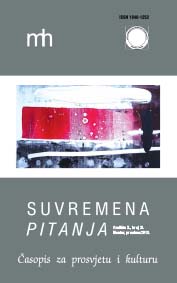Povijest najljepših otkrića i eksperimenata u fizici: od Aristotela do Higgsa
History of the Most Beautiful Discoveries and Experiments in Physics: from Aristotle to Higgs
Author(s): Slavica BrkićSubject(s): History, Philosophy, Cultural history, History of Philosophy, Epistemology, Special Branches of Philosophy, History of ideas, Philosophy of Science
Published by: Matica hrvatska Mostar
Keywords: Aristotle; Archimedes; Eratosthenes; Galileo; Roemer; Fizeau; Newton; Cavendish; Foucalt; Young; Oersted; Faraday; Hertz; Einstein; Tesla; Higgs; Howkins; Puljak
Summary/Abstract: The history of natural sciences reaches back to the distant past when man consciously started conveying knowledge and experiences to his descendants. In antiquity the research founded on experience was considered unworthy of man, while discoveries occurred accidentally. Physics, as a natural science, studies the objective reality existing independently on human consciousness. It is as a theoretical as experimental science, and it should be studied as such. How interesting is the historical development of experiments and discoveries, is shown by the editors of the American magazine “Physics World”, who in 2002 called their readers to give their vote for the most beautiful experiment in the history of physics. Some discoveries fascinate by the beauty of the idea, and some others by the importance for the development of physics. The development of historical ideas has a great educational importance for students for they have to understand that the development of physics is the work of people like them, rather than something developing outside of the space and time or exists by itself. In the last decades discoveries are not related to one man but rather to groups of scientists associated in collaborations working jointly on researches in specific areas of physics. In this paper we present the historical development of physics through interesting discoveries and experiments with the explanation why they found a place in our survey.
Journal: Suvremena pitanja
- Issue Year: 2015
- Issue No: 20
- Page Range: 105-119
- Page Count: 15
- Language: Croatian

